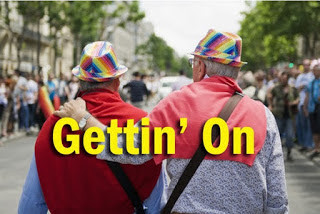From the Philadelphia Gay News
May 19, 2016
By Joseph Quinn
Every year on June 15, World Elder Abuse Awareness Day highlights the damage caused by the abuse, neglect and exploitation of older adults. Pennsylvania, it should be noted, has the fourth-largest population of seniors in the country. By 2020, about 3.3-million Pennsylvanians are expected to be over the age of 60. As this population increases, the abuse, neglect and financial exploitation of older adults is becoming a critical issue we cannot ignore.
For various reasons, elders can suffer from physical, sexual or emotional abuse at the hands of either personal or professional caregivers. Research suggests that one out of every 10 people 60 years and older who lives at home suffers abuse, neglect or exploitation, and that 44 percent of nursing-home residents report abuse or neglect.
But according to Joseph Snyder, director of Older Adult Protective Services at the Philadelphia Corporation for Aging, the most prevalent forms of reported abuse are self-neglect and financial exploitation, with the latter being the fastest-rising category. Dana Goldberg, Project SAFE coordinator for the SeniorLAW Center, adds that more than 7-million seniors in the United States fall victim to financial exploitation each year, and are defrauded of almost $3 billion a year.
Financial exploitation can include stealing money, property or identity, as well as the misuse of wills, powers of attorney and other contracts. Seniors can fall for con games that promise prizes or instant riches, or ask for donations for worthy causes. And, unfortunately, seniors are not immune to scams in which they become romantically involved with someone (often younger) who attempts to take control of their finances, property or possessions.
Social isolation is a key factor in cases of caregiver and self-neglect. Signs of neglect can include poor personal hygiene, unusual weight loss, lack of needed assistive devices such as glasses and hearing aids and failure to take required medication. These can be hard to detect if the elder is isolated and has no active ties to the community.
Signs of physical abuse, such as bruises, broken bones, burns or other unexplained injuries, are sometimes obvious. Emotional and sexual abuse are harder to determine, as there may not be any visible signs, but the victims may be nervous, depressed, withdrawn and fear being touched.
Seniors dealing with physical weakness, disability or even forms of dementia are especially vulnerable to abuse. They may fear losing the financial support of a relative or partner, or even a place to live. They are often, understandably, ashamed or embarrassed to speak up or report abuse to outsiders or the authorities. Sometimes they even blame themselves and think the abuse will eventually stop if they just keep quiet.
The matter of reporting or escaping abuse can be even more difficult for LGBT seniors. Many have endured years of discrimination and lack access to the social, economic and medical benefits available to non-LGBT adults. Seventy-five percent live alone and 20 percent have no one on whom to call in times of crisis. Guilt or shame can prevent them from coming forward publicly to report abuse at the hands of a partner or scam artist if it means discussing their sexual orientation.
We are fortunate to have several state and local agencies that offer resources for victims of elder abuse. These include PCA’s Older Adult Protective Services, the SeniorLAW Center and the Center for Advocacy for the Rights and Interest of the Elderly (CARIE). Older adults experiencing abuse in long-term care facilities, including nursing homes and personal-care homes, can access additional support through the Pennsylvania Department of Aging’s Ombudsman Program.
Victims of abuse and anyone who suspects abuse can call the following helplines:
• PCA 24-hour Helpline: 215-765-9040
• CARIE Ombudsman Program: 215-545-5724
• Pennsylvania Department of Aging Elder Abuse Hotline: 1-800-490-8505
• Pennsylvania Office of the Attorney General Elder Abuse Helpline: 1-866-623-2137
As responsible citizens, we can and must involve ourselves directly in preventing elder abuse and helping victims. The most important thing we can do is take an active personal interest in the lives of our older relatives, friends and neighbors, and do whatever we can to ensure that they continue to “age safely,” free from all forms of abuse and neglect.
On June 4, the LGBT Elder Initiative will present a free workshop on “Aging Safely: Preventing Elder Abuse, Neglect & Exploitation.” It will explore ways elder abuse affects LGBT older-adult populations and will feature experts addressing these issues from medical, social and legal perspectives. To register or for more information, visit www.lgbtei.org.
Joseph Quinn is a retired technical writer and editor. He lives in Center City and volunteers with the William Way Community Center and the LGBT Elder Initiative, which fosters and advocates for services, resources and institutions that are competent, culturally sensitive, inclusive and responsive to the needs of LGBT elders in the Delaware Valley.

